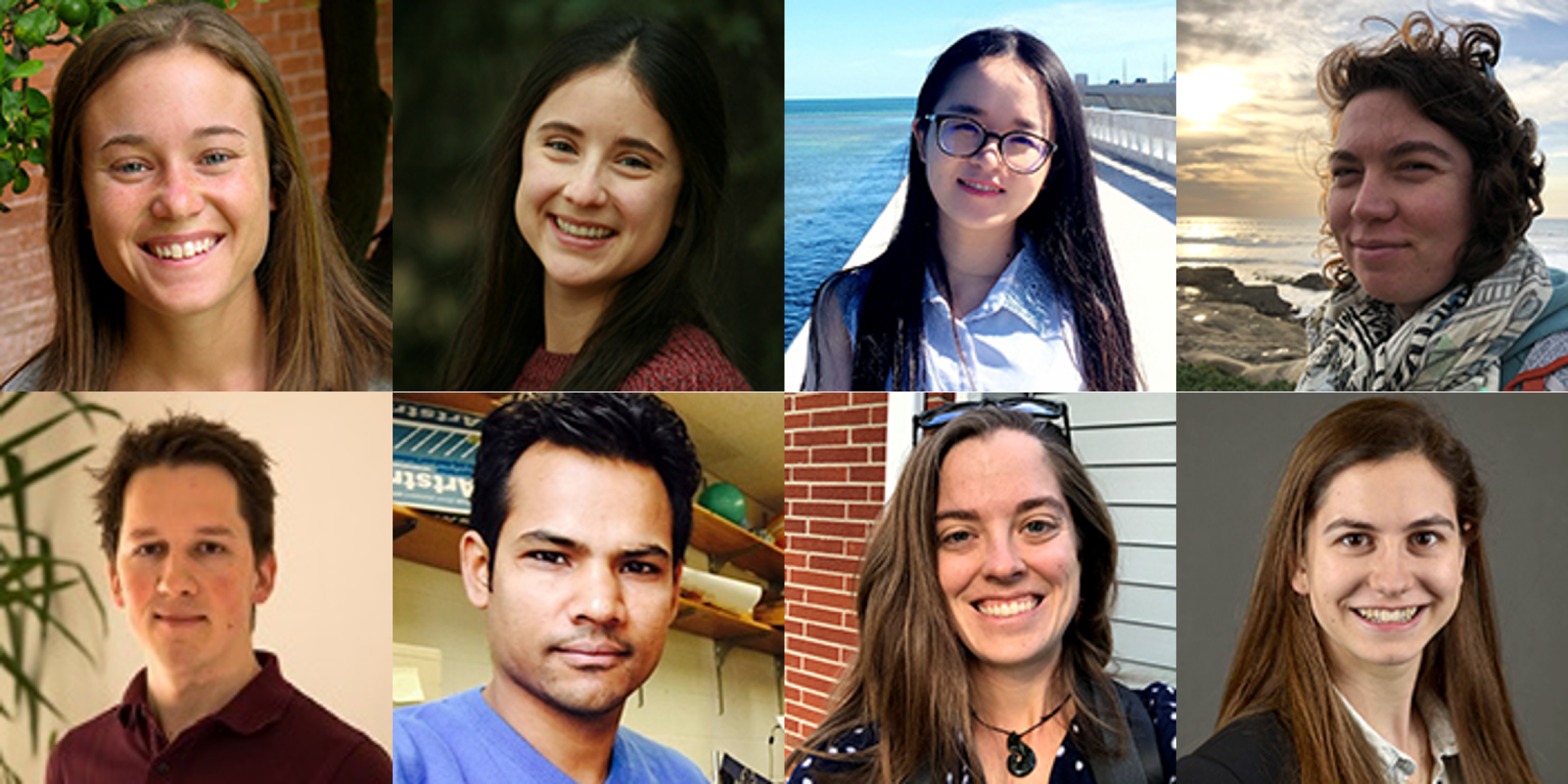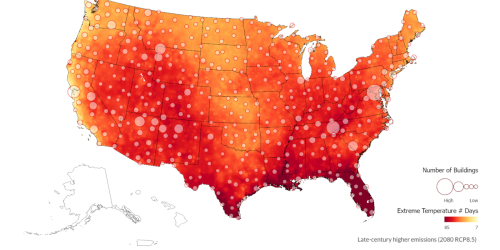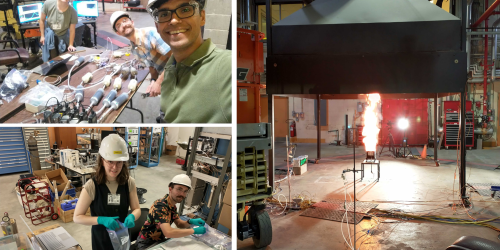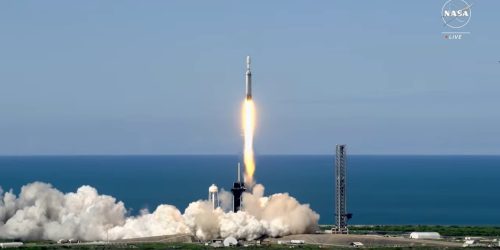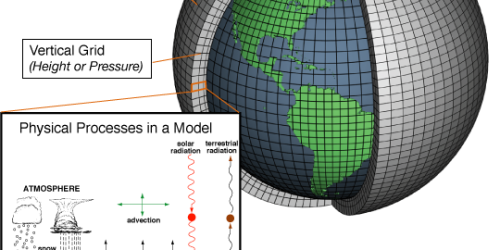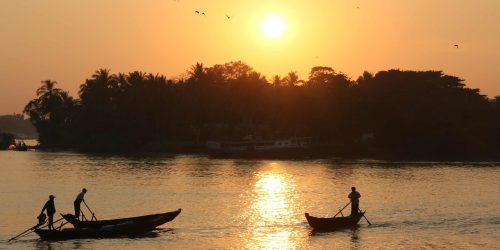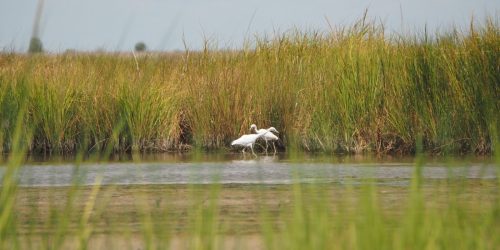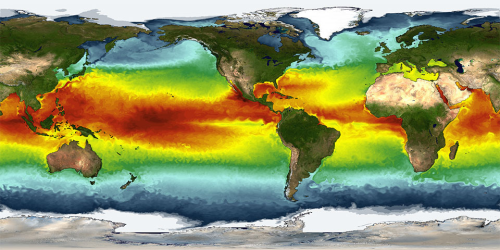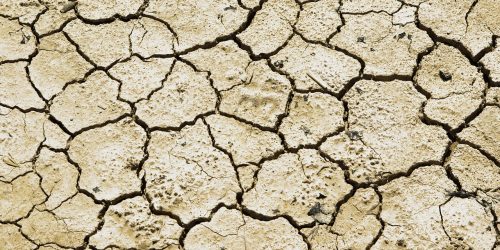Eight new postdoctoral fellows are commencing cutting-edge research projects that will contribute innovative climate science to the research community as well as NOAA’s mission.
These fellows are the new 2020-2022 class of NOAA Climate and Global Change (C&GC) Postdoctoral Fellows, selected by NOAA’s Climate Program Office (CPO) and the University Corporation for Atmospheric Research (UCAR).
“Since 1991, the NOAA Climate and Global Change Postdoctoral Program has been growing the next generation of climate and global change experts,” said Wayne Higgins, Director of NOAA’s Climate Program Office. “With this year’s class of 8 talented fellows, the Program has now sponsored almost 240 fellows who are collectively helping to achieve a diverse community of experts that span climate and global change research.”
Chosen from over one hundred applications through a competitive review process, the fellows are promising early career scientists who are within five years of completing their Doctors of Philosophy (PhDs). Over the next two years, the eight fellows will be hosted by mentoring scientists at universities and research institutions around the country to conduct projects focused on observing, understanding, modeling, and predicting climate variability and change.
“The NOAA C&GC Postdoc Fellowship brings a diverse community to focus on the greatest challenges in global and climate change, while giving fellows intellectual and institutional freedom to pursue the next great challenge,” said Jin Huang, the new NOAA C&GC Postdoc Fellowship Program Federal Liaison and CPO Earth System Science and Modeling Division Chief.


Sponsored by CPO and managed by UCAR, the NOAA C&GC Postdoc Fellowship Program helps create and train the future leading researchers needed for climate studies, to serve the nation and support NOAA’s mission. Over the past 30 years, the Program has developed an outstanding reputation of attracting the best and brightest PhDs in the climate sciences.
“Through the fellows, NOAA invests in exploring topics, beyond the horizon of current needs and strategic plans, that one day might become core research and operations at NOAA, while training the future NOAA workforce and its collaborators,” said Monika Kopacz, NOAA C&GC Postdoc Fellowship Program Science Liaison and CPO Atmospheric Chemistry, Carbon Cycle, and Climate Program Manager. “Given its 30 years of success, the Program is a great source of pride for NOAA, having already trained many of today’s leaders.”
The program was originally founded in 1990 by former CPO Director, Dr. J. Michael Hall, in response to the lack of trained climate scientists to analyze the massive quantity of data collected by the international Tropical Ocean Global Atmosphere Program (TOGA), which ran from 1985 to 1994.
The most recent evaluation of the Postdoc Program, conducted by the NOAA Climate Working Group (CWG) in 2018, found an “excellent” program, “as demonstrated by Fellow and Alumni scientific achievements, citations, innovations, prestigious appointments, and leadership roles.” The evaluation also counseled managers on how to perfect the program in future classes.
“In response to the recent review of the Climate and Global Change Postdoctoral Program, NOAA doubled the number of fellows from 4 in 2019 to 8 in 2020, to accelerate the development of the next generation of climate and global change experts,” said Higgins.
Other responses to the CWG’s review recommendations include increased interactions between NOAA and the Postdoc Program as well as enhanced diversity and inclusion.
The Program traditionally supports two forums where fellows can engage with NOAA and each other— a NOAA Summer Institute every other July, as well as an annual alumni luncheon at the American Geophysical Union (AGU) Fall Meeting in December.
.JPG)
Group of current and former NOAA C&GC Postdoc fellows and others at the 2019 NOAA Summer Institute getting a tour of the Storm Peak Laboratory in Steamboat Springs, Colorado. (Credit: Dawn Mullally, UCAR)
Events like the Summer Institute and AGU alumni luncheon help build a stronger global climate change community by introducing the postdoc fellows to each other and to more senior scientists. They also facilitate interactions between those associated with the Program, including NOAA and UCAR managers, on a regular basis.
“One of the most amazing parts of the Fellowship is that there is an incredible network of alums extending back multiple decades that you get to interact with, network with, and benefit from,” said Leander Anderegg, 2017-2019 NOAA C&GC Postdoc Fellow. “The NOAA C&GC Postdoc Program is…one of the best (in fact, probably the best) fellowships around.”
Huang attended the Summer Institute for the first time last year and was impressed by the quality of postdocs supported by the Program.
“I was blown away by the cutting-edge science they have conducted, as well as their passion for science, scope and depth of knowledge, and talents and innovation,” said Huang. “I truly believe that the Program has helped train the future leaders for NOAA and for the broader climate community.”
Kopacz noted that by training the C&GC Postdoc fellows to be the future climate science workforce — its leaders, scientists, and communicators — NOAA can feel hopeful that it is putting the future of global and climate change research in the capable hands of promising young scientists.
“Climate research is an ongoing science challenge,” said Kopacz. “As impacts from climate change manifest themselves more and more, the need for the brightest minds to work on it is that much more urgent.”
2020 NOAA Climate & Global Change Postdoctoral Fellowship Awardees
.jpg)
Rebecca Beadling
Proposal Topic: Mean state representation and the reorganization of subtropical gyre systems under continued warming with implications for regional and global climate
Host: Dr. John Krastling, NOAA Geophysical Fluid Dynamics Laboratory
PhD Institution: University of Arizona, Department of Geosciences
.jpg)
Andrea Jenney
Proposal Topic: Understanding the Impacts of the Vertical Distribution of Atmospheric Stable Layers on Convection
Host: Dr. Michael Pritchard, University of California, Irvine
PhD Institution: Colorado State University, Department of Atmospheric Sciences
.jpg)
Xiaomeng Jin
Proposal Topic: Reactive nitrogen from wildfires: emissions, chemical evolution and impacts
Host: Dr. Ronald Cohen, University of California, Berkeley
PhD Institution: Columbia University, Lamont-Doherty Earth Observatory
.jpg)
Isabel McCoy
Proposal Topic: Understanding the role of cloud morphologies in low cloud feedbacks
Host: Dr. Paquita Zuidema, University of Miami, Rosenstiel School of Marine and Atmospheric Sciences
PhD Institution: University of Washington, Department of Atmospheric Sciences
.jpg)
Sebastian Milinski
Proposal Topic: Constraining the contribution of SST warming patterns to the uncertainty in estimates of climate sensitivity by combining large ensembles and observations
Host: Dr. Clara Deser, NCAR Climate and Global Dynamics Division
PhD Institution: Max Planck Institute for Meteorology and International Max Planck Research School on Earth System Modelling
.jpg)
Uday Thapa
Proposal Topic: Investigating Changes in Spring-time Water Availability to Inform Water Management in the Himalayas
Host: Dr. Samantha Stevenson, University of California, Santa Barbara
PhD Institution: University of Minnesota, Department of Geography


Nina Whitney
Proposal Topic: Assessing Long-Term Atlantic Meridional Overturning Circulation Variability over the Late Holocene using High-Resolution Water Mass Proxies from the Western North Atlantic and Numerical Model Simulations
Host: Dr. Caroline Ummenhofer, Woods Hole Oceanographic Institution
PhD Institution: Iowa State University, Department of Geological and Atmospheric Sciences
.jpg)
Madeleine Youngs
Proposal Topic: Northern Hemisphere Climatological Storm Tracks Under Climate Change: A Dynamical Systems Perspective
Host: Dr. Edwin Gerber, New York University, The Courant Institute of Mathematical Sciences
PhD Institution: Massachusetts Institute of Technology – Woods Hole Oceanographic Institution Joint Program for Oceanography


